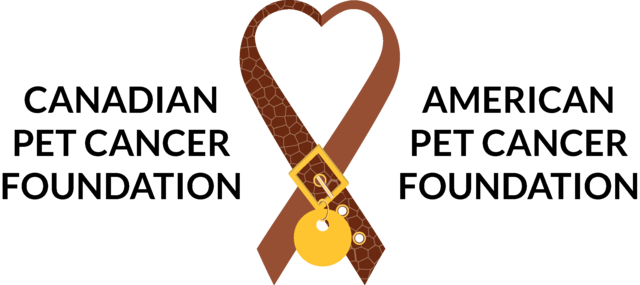- Relationship Between Genes and Cancer
- Relationship between genes and cancer, overview
- What is mutation and what causes a mutation?
- Types of mutations
- How do mutations lead to cancer?
TYPES OF MUTATIONS
Cancer arises from changes to your pet’s genes. These alterations are called genetic mutations, and they can result from errors in DNA replication during cell division, exposure to mutation-causing agents, or a viral infection. Mutations occur in your pet’s cells, but most don’t lead to health problems because cells have a sophisticated repair mechanism to fix the errors. But sometimes, the repair mechanism becomes faulty, and the body can’t repair the mistakes, resulting in the rise of disease conditions such as cancer.
What types of genetic mutations exist?
There are two kinds of gene mutations: germline and somatic.
Germline mutations, also called hereditary mutations, occur in reproductive or “germ” cells–egg cells in females and sperm cells in males. The egg and sperm fuse together at conception and eventually start the division process to form the fetus. Germline mutations can pass from one generation of cells to the next, thus appearing in every cell in the offspring. Reports have shown that Rottweilers may be at higher risk of cancer associated with germline mutations, but this type of mutation is rare in other breeds. Others have demonstrated that German Shepherds may rarely develop kidney, skin, and uterus cancers because of germline mutations. In cats, recent investigations have determined germline mutations may be associated with breast cancer. However, germline mutations are generally rare in dogs and cats.
Somatic mutations occur in cell types other than reproductive cells, and somatic mutations do not pass from one generation to the next. Somatic mutations generally arise from environmental and lifestyle factors such as second-hand smoke, exposure to ultraviolet radiation, toxic chemicals, or simply DNA replication errors that don’t get repaired. Somatic mutations are the most common causes of cancer, and some examples include canine malignant melanoma and feline mammary carcinoma.
Learning what types of mutations lead to cancer allows you to understand better what caused your pet’s disease. Furthermore, this knowledge gives you the confidence you need to discuss treatment options with your vet and give your furry friend many happy days after diagnosis.

The Pet Cancer Foundation’s Website Editorial team is comprised of veterinarians, veterinary oncologists, and veterinary technicians, as well as scientific writers and editors who have attained their PhD’s in the life sciences, along with general editors and research assistants. All content found in this section goes through an extensive process with multiple review stages, to ensure this extended resource provides pet families with the most up-to-date information publicly available.
The team listing of those contributing to the information on this page is here:
Keep Your Pets Healthy Editorial Team
Last Updated: January 30, 2023
The Pet Cancer Foundation’s medical resource for pet owners is protected by copyright.
For reprint requests, please see our Content Usage Policy.

The Pet Cancer Foundation’s Medical Illustration team is comprised of medical illustration specialists and graphic designers that work in consultation with our team of experts to create the medical art found throughout our website. Though not all medical concepts require the assistance of imagery, when a page does contain a medical illustration, credit to the artist and our medical art director will be noted here.
The Pet Cancer Foundation’s medical imagery is protected by copyright and cannot be used without prior approval that includes a mutually signed licensing agreement. Please review our Content Usage Policy.
The following sources were referenced to write the content on this page:
Acuna-Hidalgo, R, Veltman, JA & Hoischen, A 2016, ‘New insights into the generation and role of de novo mutations in health and disease’, Genome Biol, vol. 17, no. 1, pp. 241-260.
Adega, F, Borges, A & Chaves, R 2016, ‘Cat mammary tumors: genetic models for the human counterpart’, Vet Sci, vol. 3, no. 3, pp. 17-37.
Alsaihati, BA, Ho, KL, Watson, J, Feng, Y, Wang, T, Dobbin, KK & Zhao, S 2021, ‘Canine tumor mutational burden is correlated with TP53 mutation across tumor types and breeds’, Nat Commun, vol. 12, no. 1, p. 4670.
Brocca, G, Poncina, B, Sammarco, A, Cavicchioli, L & Castagnaro, M 2020, ‘KIT Somatic mutations and immunohistochemical expression in canine oral melanoma’, Animals (Basel), vol. 10, no. 12, pp. 2370-2383.
Chen, J, Miller, BF & Furano, AV 2014, ‘Repair of naturally occurring mismatches can induce mutations in flanking DNA’, ELife, vol. 3, no. e02001, pp. 1-27.
Clancy, S 2008, ‘Genetic mutation’, Nature Education, vol. 1, no. 1, p. 187.
Davis, BW & Ostrander, EA 2014, ‘Domestic dogs and cancer research: a breed-based genomics approach’, ILAR J, vol. 55, no. 1, pp. 59-68.
Govoni, VM, Da Silva, TC, Guerra, JM, Pereira, IVA, Queiroga, FL & Cogliati B 2021, ‘Genetic variants of BRCA1 and BRCA2 genes in cats with mammary gland carcinoma’, Vet Comp Oncol, vol. 19, no. 2, pp. 404-408.
Jarred, EG, Bildsoe, H & Western, PS 2018, ‘Out of sight, out of mind? Germ cells and the potential impacts of epigenomic drugs’, F1000Res, vol. 7, pp. 1-14.
Lee, JH 2016, ‘Somatic mutations in disorders with disrupted brain connectivity’, Exp Mol Med, vol. 48, no. 6, pp. e239-e248.
Lingaas, F, Comstock, KE, Kirkness, EF, Sørensen, A, Aarskaug, T, Hitte, C, Nickerson, ML, Moe, L, Schmidt, LS, Thomas, R, Breen, M, Galibert, F, Zbar, B & Ostrander, EA 2003, ‘A mutation in the canine BHD gene is associated with hereditary multifocal renal cystadenocarcinoma and nodular dermatofibrosis in the German Shepherd dog’, Hum Mol Genet, vol. 12, no. 23, pp. 3043-3053.
Liao, AT, McMahon, M & London CA 2006, ‘Identification of a novel germline MET mutation in dogs’, Anim Genet, vol. 37, no. 3, pp. 248-252.
The Pet Cancer Foundation’s medical resource for pet owners is protected by copyright.
For reprint requests, please see our Content Usage Policy.
